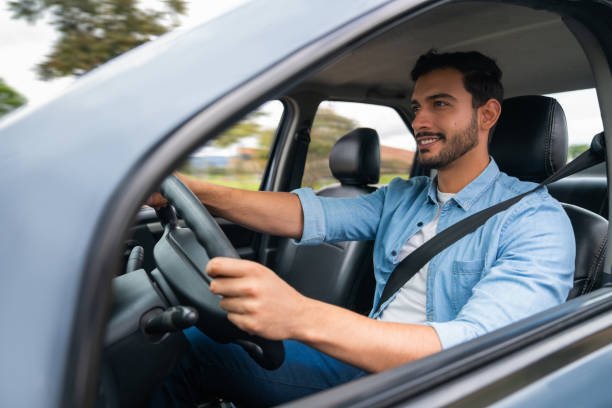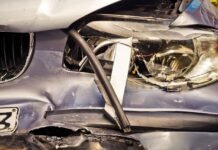
Driving Under the Influence of Alcohol or Drugs is a punishable offense by all states in the United States.
Most states consider it a criminal offense. Such laws are not out of place, considering that about 31% of all traffic crash fatalities in the US involve drunk drivers. It is also estimated that one person every 39 minutes is killed in a crash involving a drunk driver.
Most DUI arrests start with the driver being pulled over by the police. However, the officer must have a valid reason for doing so. You can get stopped or pulled over if they notice signs of impairment or traffic violation.
According to the Law Office of Aaron M. Black, PLLC, a reputable firm with a DUI lawyer in Phoenix, Arizona, the best way to avoid a DUI arrest and conviction is not to drink. Still, if you have been drinking and driving, there are ways an experienced lawyer can help your case.
For instance, if you get charged for DUI due to a prescription, your attorney can defend you by proving you took the medication as prescribed and there was no warning on the label that advised against driving.
While this article is not to encourage drunk driving, it will explore reasons people might drive while under the influence and what to do if arrested.
Why do people drive under the influence of alcohol or drugs?
Driving under the influence is dangerous; despite knowing the dangers, some people still get behind the wheel after having a few drinks. Below are some of the reasons why;
Peer pressure
Drinking alcohol when hanging out with friends can be a way to feel more accepted. This is very common among young people. They ignore the risk of drunk driving and prioritize fitting in with friends.
Adults who socialize with other drivers who drink can also be encouraged to do the same.
Depression
People experiencing depression, such as financial depression or loss of loved ones, can resort to drinking alcohol or using drugs to ease their symptoms and feel better.
Over time, this can lead to alcohol use disorder or addiction to the extent the individual can only handle routine tasks like driving after drinking or using drugs.
Lack of alternative transport
After the party or club fun, the next destination is home. It is recommended to use alternative transport such as taxis and e-hailing cabs when drunk, even when not impaired.
However, the absence of these alternatives can force some people to drive themselves.
Lack of awareness
It is possible not to feel intoxicated before starting your car. This can happen if you drink caffeine and alcohol at the same time.
Since they do not feel drunk after drinking, some people think all is fine and they can drive safely. This, however, is not always true, as the alcohol effect may kick in on your way home, thereby impairing your vision.
False confidence
Many people find that alcohol temporarily boosts their confidence. This is because it helps to quell anxiety and fears. Alcohol also lowers inhibitions, making them feel less restrained and more likely to act impulsively.
This can become detrimental to the extent it impairs judgment to the point where driving appears to be a logical decision.
Embarrassment
Some people, out of fear of embarrassment, participate in alcohol-drinking events even though they will be driving after. Afterward, they get behind the wheel to boast to their friends or colleagues that they can drive safely regardless.
Minimal police presence
Drivers may become less worried about the consequences of drinking and driving due to minimal police presence in the area.
The confidence boost derived from alcohol or drugs can also give some people the illusion of invisibility. This can give them false confidence to drive while drunk, especially if they have done it before without being caught.
What to do if arrested for DUI
1. Be calm and quiet
Getting angry at the police officer can make things worse. Remain calm, and do not make any movement that might be interpreted as threatening the officer.
Do not try to befriend the police to change their minds. It is never a good idea to talk to the police without your lawyer present.
2. Request a DMV hearing
When arrested for DUI, there are two cases you are likely to face: a criminal case and the DMV Administrative Per Se (APS) case.
Unlike the criminal case, where the police will inform you about the date for your arraignment, you will have to request a DMV APS hearing.
Failure to do this within the first ten days from the date of the arrest will result in automatic suspension of your license.
3. Record the details of the event
Documenting the event, starting from when the police pulled you over, can help build a good argument for your defense. You may be able to get the case dismissed if you can prove the police have no reasonable basis to believe you were driving under the influence.
4. Get the police report
This will contain the majority of the evidence against you. It will also include all tests conducted and their results.
Once you have this, compare it with your documentation of the incident to identify any inconsistency. For instance, if the report claimed you refused to take a test when you indeed took it, that could invalidate the report.
5. Hire a reputable DUI lawyer
Hiring a reputable DUI lawyer can significantly boost your fighting chance. You will be assigned a public defender if you do not hire a private attorney. While this can be inexpensive, they handle many cases at once, so you might not be their priority.



